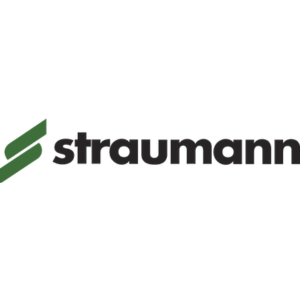Taxation is one of the most significant obligations for any business, especially when staying compliant with HMRC and following payroll guidelines.

Understanding the nuances between tax avoidance and tax evasion is crucial for all businesses to abide by the law while optimising financial outcomes. Learn about the legal obligations businesses have towards HMRC, and ways to remain compliant with your business payroll below.
Legal business obligations to HMRC
For businesses operating in the UK, your legal obligations to HMRC are stringent. HMRC is the UK’s tax, payments, and customs authority, responsible for ensuring that the right amount of tax is paid at the right time, see below:
- Registration: All businesses must register with HMRC. This includes registering for VAT if your taxable turnover exceeds the VAT threshold, currently set at £85,000 as of 2024.
- Record Keeping: Businesses are legally required to keep accurate and detailed records of all income and expenses. These records must be kept for at least six years.
- Timely Submission of Tax Returns: You must submit accurate tax returns on time, including Corporation Tax returns, VAT returns, and PAYE returns if you employ staff. Missing deadlines can lead to penalties and interest on unpaid taxes.
- Payment of Taxes: Your business is legally obliged to pay the correct amount of taxes. This includes Corporation Tax, VAT, PAYE (Pay As You Earn), and National Insurance Contributions (NICs).
- Compliance with Payroll Obligations: If you employ staff, you must operate a PAYE system to deduct income tax and NICs from your employees’ wages and report these to HMRC. Failure to meet these obligations can result in business penalties, interest charges, and in severe cases, criminal prosecution.
Cloud-Based Payroll Software
Cloud-based payroll software operates by utilising cloud computing technology.
Managed Payroll Services
Opt for a fully managed payroll service by outsourcing the entire payroll process to PayEscape
Integrated HR and Payroll
PayEscape’s integrated HR and payroll software combines powerful HR functionality with robust payroll capabilities.
Need help to understand what solution is best for your business?
Speak with our expert team today on 028 2764 1060
What is business tax avoidance?

Business tax avoidance refers to the legal use of the tax system to minimise a company’s tax liability. Tax avoidance involves planning and structuring business activities to take advantage of tax breaks, deductions, and exemptions provided by the law. While tax avoidance is technically legal, it sits in a grey area where the morality and ethics of such practices are often questioned. HMRC defines tax avoidance as the act of “bending the rules of the tax system to gain a tax advantage that Parliament never intended”. This could involve complex and artificial transactions that are structured primarily to create a tax benefit.













Examples of business tax avoidance
Transfer pricing
Multinational companies may shift profits from high-tax jurisdictions to low-tax ones through transfer pricing. This involves setting prices for goods and services sold between subsidiaries of the same company in different countries.
Use of tax havens
Businesses may establish subsidiaries or relocate profits to countries with lower tax rates, known as tax havens. This allows them to reduce their overall tax bill, even if most of their revenue is generated elsewhere.
Interest deduction schemes
Companies might structure loans within their corporate group to create large interest payments that are deductible from taxable profits. This reduces the company’s overall tax liability.
Capital allowances
Some businesses aggressively claim capital allowances, which allow them to write off the cost of certain assets against their taxable profits, sometimes stretching the interpretation of what qualifies.
While these strategies are legal, they are increasingly scrutinised by HMRC. In some cases, what starts as tax avoidance can lead to disputes with HMRC, potentially resulting in costly legal battles and reputational damage.
How are tax planning and tax avoidance different?
Tax planning and tax avoidance are often confused, but they are fundamentally different in both intent and execution.
 Tax planning
Tax planning
Tax planning involves arranging your financial affairs in a way that legitimately reduces your tax liability. This includes:
- Making use of allowances and reliefs: For example, claiming R&D tax credits, utilising the Annual Investment Allowance, or taking advantage of capital gains tax reliefs.
- Timing income and expenditure: Planning when to make large purchases or investments to optimise tax outcomes.
- Choosing the right business structure: Sole trader, partnership, or limited company, each of which has different tax implications.
Tax avoidance
Tax avoidance, on the other hand, involves exploiting loopholes or taking advantage of tax schemes that may not align with the intended spirit of the law. It often involves artificial arrangements designed solely to reduce tax liabilities. Unlike tax planning, which is fully endorsed by HMRC, tax avoidance can lead to investigations, penalties, and a demand to repay avoided taxes. In essence, tax planning is about working within the framework of the law, while tax avoidance is about pushing the boundaries of the law to the limit.
What are the penalties for tax avoidance?
While tax avoidance is not illegal, HMRC has the power to challenge and penalise businesses that engage in it, especially if they deem the activities to be abusive or aggressive.
- Accelerated Payment Notices (APNs): HMRC can issue an APN, requiring the business to pay the disputed tax upfront while the investigation continues. This places the financial burden on the taxpayer rather than HMRC during disputes.
- Penalties: If HMRC successfully challenges a tax avoidance scheme, the business may face significant penalties. These can be up to 100% of the tax due, effectively doubling the business’s tax liability.
- Reputational Damage: Beyond financial penalties, businesses caught in tax avoidance schemes often suffer reputational harm. This can affect customer trust, investor confidence, and relationships with other stakeholders.
- Disclosure of Tax Avoidance Schemes (DOTAS): Businesses involved in tax avoidance may be required to disclose details of the scheme under DOTAS rules. Failure to do so can result in additional penalties. HMRC is increasingly taking a hard line against tax avoidance, using a combination of legislative measures and public shaming to deter businesses from engaging in these practices.
What is tax evasion?

Tax evasion is an entirely different matter from tax avoidance. It refers to the illegal act of deliberately misrepresenting or concealing information to reduce tax liability. Unlike tax avoidance, which operates in the legal grey area, tax evasion is a criminal offence.HMRC defines tax evasion as “a deliberate attempt to cheat the tax system”. This could involve submitting false tax returns, failing to disclose taxable income, or even conducting business ‘off the books’. Examples of tax evasion include underreporting income, inflating expenses, hiding money or assets in offshore accounts, and not paying due taxes like VAT or PAYE.
Examples of tax evasion
- Underreporting Income: A business may deliberately underreport its revenue to reduce its tax liability. This could involve not declaring cash payments or manipulating accounts to show lower sales.
- Inflating Expenses: Businesses might overstate their expenses, such as claiming personal expenses as business costs, to reduce their taxable profits.
- Non-Disclosure of Offshore Income: Hiding income in offshore bank accounts and not declaring it to HMRC is a common form of tax evasion.
- False Accounting: Creating fake invoices or other documents to support false deductions or to cover up undeclared income is a serious form of tax evasion.
Using our cloud-based software we manage all aspects of your payroll process. From calculating your payroll taxes and filing with HMRC to managing all components of auto enrolment and so much more. Whether it’s reimbursement or pre-tax benefits we’ve got it covered.
Our HR platform lets you manage all aspects of your HR administration. With HR Escape can approve and monitor holiday, record working time and calculate wages, allocate time and staff expenses to clients, projects, and activities, and much more.
What are the penalties for tax evasion?
Tax evasion is a serious crime in the UK and carries severe penalties, including:
- Criminal Prosecution: Those found guilty of tax evasion can face criminal charges, leading to fines, community service, or imprisonment. In serious cases, custodial sentences can be up to seven years.
- Confiscation of Assets: Under the Proceeds of Crime Act, HMRC can confiscate assets that are deemed to have been obtained through criminal activity, including tax evasion.
- Heavy Fines: In addition to repaying the evaded tax, businesses can be fined up to 200% of the tax owed.
- Reputational Damage: Like tax avoidance, being caught for tax evasion can severely damage a business’s reputation, potentially leading to a loss of customers, investors, and key partnerships.
- Public Naming and Shaming: HMRC regularly publishes the names of businesses and individuals convicted of tax evasion, further damaging their reputations.
Tax evasion is treated with zero tolerance by HMRC, and they employ a wide range of powers to detect, investigate, and punish offenders.
What is the difference between tax fraud and tax evasion?
Tax fraud and tax evasion are often used interchangeably, but they are distinct concepts.
- Tax Evasion: Tax evasion refers to the illegal act of deliberately avoiding paying taxes by not reporting income, inflating deductions, or hiding money. It is a form of fraud specifically related to taxes.
- Tax Fraud: Tax fraud is a broader term that encompasses any fraudulent activity related to taxes. This could include tax evasion, but also extends to activities such as
-
- Falsifying documents: Submitting fake documents to HMRC, such as fake invoices or false expense claims.
- Identity theft: Using someone else’s identity to file fraudulent tax returns or claim refunds.
- VAT fraud: Engaging in schemes to reclaim VAT on non-existent transactions or carousel fraud, where goods are moved across borders to fraudulently reclaim VAT.
In essence, tax evasion is a type of tax fraud, but not all tax fraud is tax evasion. Both are criminal offences with serious consequences.
How will I know if I am being investigated by HMRC?

HMRC investigations can be stressful and time-consuming. It’s crucial to know the signs that your business may be under scrutiny.
Common indicators of an HMRC investigation:
- Unusual Correspondence: Receiving letters from HMRC asking for clarification on tax returns, requesting additional documents, or detailing discrepancies in your submitted returns can be a sign of an impending investigation.
- PAYE or VAT Audits: If HMRC requests a PAYE or VAT audit, it may be a precursor to a broader investigation into your tax affairs.
- Unannounced Visits: HMRC has the authority to conduct unannounced visits to inspect records and interview staff. This is a strong indication that your business is under investigation.
- Third-Party Information: HMRC often relies on information from third parties, such as banks, customers, or employees. If they receive a tip-off, they may initiate an investigation based on this information.
- Suspicious Tax Returns: If your tax returns show unusual patterns, such as consistently low profits despite high turnover, HMRC might flag this for further investigation.
Types of HMRC Investigations:
- Full Enquiry: This is a comprehensive investigation into all aspects of your tax affairs, often triggered by significant discrepancies or suspicions of evasion.
- Aspect Enquiry: This is a more limited investigation focusing on a specific part of your tax return, such as a large expense claim or an unusual transaction.
- Random Check: Occasionally, HMRC conducts random checks on businesses to ensure compliance. These are not triggered by suspicion but can still lead to more extensive investigations if issues are found.
How to stay compliant with your business payroll
 Staying compliant with payroll obligations is one of the most important aspects of running a business. Non-compliance can lead to penalties, interest charges, and even investigations by HMRC.
Staying compliant with payroll obligations is one of the most important aspects of running a business. Non-compliance can lead to penalties, interest charges, and even investigations by HMRC.
Key steps to ensure payroll compliance:
- Accurate Record Keeping: Ensure that all payroll records are accurate, up-to-date, and kept for at least six years. This includes payslips, P60s, and records of all payments made to employees.
- Correct PAYE Deductions: Ensure that you are correctly deducting PAYE tax and National Insurance Contributions from your employees’ wages. These must be reported and paid to HMRC on time.
- Real-Time Information (RTI) Reporting: Submit payroll information to HMRC in real-time, each time you pay your employees. This is a legal requirement and helps HMRC keep track of your payroll activities.
- Stay Informed of Changes: Tax rules and regulations are constantly changing. Ensure you stay informed of any changes that could affect your payroll obligations.
- Use Reliable Payroll Software: Consider using payroll software that is HMRC-approved to manage your payroll more efficiently and reduce the risk of errors.
- Outsource Payroll Services: If managing payroll in-house is too complex or time-consuming, consider outsourcing it to a professional payroll service provider.
Choose PayEscape

Choosing the right payroll service provider can make a significant difference in ensuring compliance with HMRC’s payroll regulations. PayEscape is an excellent choice for businesses looking to outsource their payroll processes and ensure compliance with UK tax laws.
- HMRC Compliance: PayEscape’s payroll services are fully compliant with HMRC’s regulations, ensuring that your business meets all payroll obligations without any stress.
- Real-Time Information Reporting: PayEscape automatically handles RTI submissions to HMRC, ensuring that your payroll data is always accurate and up-to-date.
- Time-Saving: Outsourcing payroll to PayEscape frees up your time to focus on other aspects of your business, knowing that your payroll is in safe hands.
- Expert Support: PayEscape provides expert support, helping you navigate complex payroll issues and stay informed of any changes in tax laws.
- Flexibility: Whether you have a small business with a few employees or a large corporation, PayEscape offers flexible payroll solutions tailored to your needs.
- Peace of Mind: With PayEscape, you can rest assured that your payroll is being managed by professionals who understand the intricacies of UK tax law and are dedicated to ensuring your business remains compliant.
Outsourcing your payroll to PayEscape not only ensures compliance with HMRC regulations but also provides peace of mind that your payroll processes are being handled efficiently and accurately.
Book your demo now.
Need help to understand what solution is best for your business? Speak with our expert team today on 028 2764 1060
"*" indicates required fields















